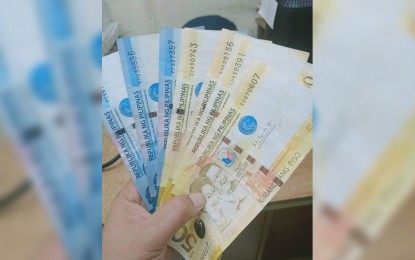
MANILA – The Anti-Money Laundering Council (AMLC) will continue to be on guard against any money laundering and terrorist financing activities, and is closely coordinating with various government agencies for any assessments and reports.
This, after a police officer and a government executive recently questioned the motive of a community pantry organizer, claiming that Patricia Non is linked with leftist groups.
Non started a fundraising drive for Community Pantry PH through Paypal and has raised about USD20,000 so far.
“Incidentally, we cannot disclose whether the AMLC checked the financial transactions of the subject,” the AMLC Secretariat said Tuesday night in a reply to emailed questions from the Philippine News Agency.
The AMLC Secretariat said the AMLC, under Section 10 of the Terrorism Financing Prevention and Suppression Act of 2012, or Republic Act (RA) No. 10168, has been authorized to investigate either on its own initiative or at the request of the Anti-Terrorism Council any property or funds that are related to financing of terrorism or acts of terrorism, and any property or funds of any person or persons in relation to whom if "there is probable cause to believe that such person or persons are committing; attempting or conspiring to commit; or participating in or facilitating the financing of terrorism or acts of terrorism.”
“In addition, law enforcement agencies (such as the Philippine National Police and the Armed Forces of the Philippines) and other government agencies also make referrals to the AMLC if there are results of their initial investigation or if there have been cases filed against the subjects,” it said.
Amid allegations that some of these community pantries are being used as front by leftist groups, the AMLC Secretariat said it analyzes financial information and disseminates financial intelligence reports to law enforcement offices and other financial intelligence units (FIU) here and overseas.
“The AMLC also releases proactive risk assessments, studies, and reports, which have become tools to inform stakeholders, such as law enforcement, supervising authorities, and the private sector, on the risks to money laundering and terrorism financing of certain sectors and to guide decision-makers in crafting policy initiatives,” it said.
It also “investigates suspicious transactions; covered transactions deemed suspicious; money laundering and terrorism financing activities; and violations of anti-money laundering and counter-terrorism financing (AML/CTF) laws, rules, and regulations.”
It added the Council has adopted an inverted triangle approach to supervision since 2017, with it on top followed by the Bangko Sentral ng Pilipinas (BSP), the Securities and Exchange Commission (SEC), and the Insurance Commission (IC) at the middle level, and the covered persons like banks, trust entities, and pawnshops, at the bottom.
“In other words, the AMLC partners with supervising authorities and appropriate government agencies to ensure covered persons under their respective jurisdictions comply with AML/CTF (anti-money laundering/counter-terrorism financing) matters,” the AMLC Secretariat said.
However, it said “covered persons, such as banks and financial intermediaries, is the first line of defense in executing AML/CTF preventive measures as they have direct contact with their customers.” (PNA)
